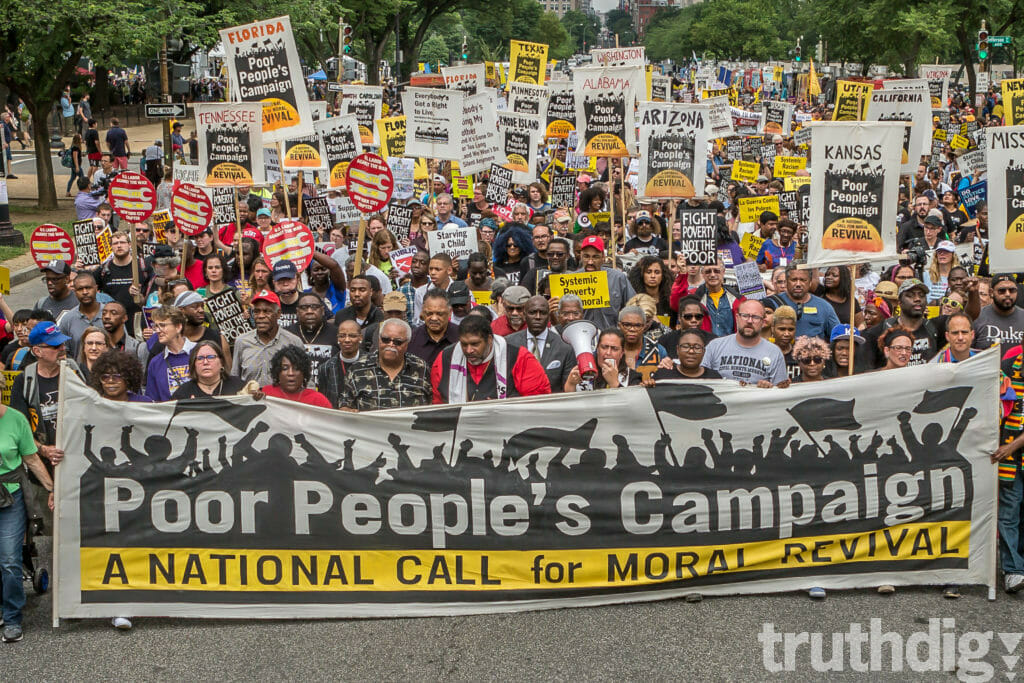
D.C. Rally Ends the Initial Phase of Poor People’s Campaign
Michael Nigro / Truthdig June 24, 2018 21 photos-

More than 10,000 participants in the Poor People’s Campaign: A National Call for Moral Revival converged on the U.S. Capitol on Saturday to kick off a major voter engagement and power-building initiative aimed at mobilizing poor and low-income people to the polls across the South and beyond. (Michael Nigro / Truthdig)
-
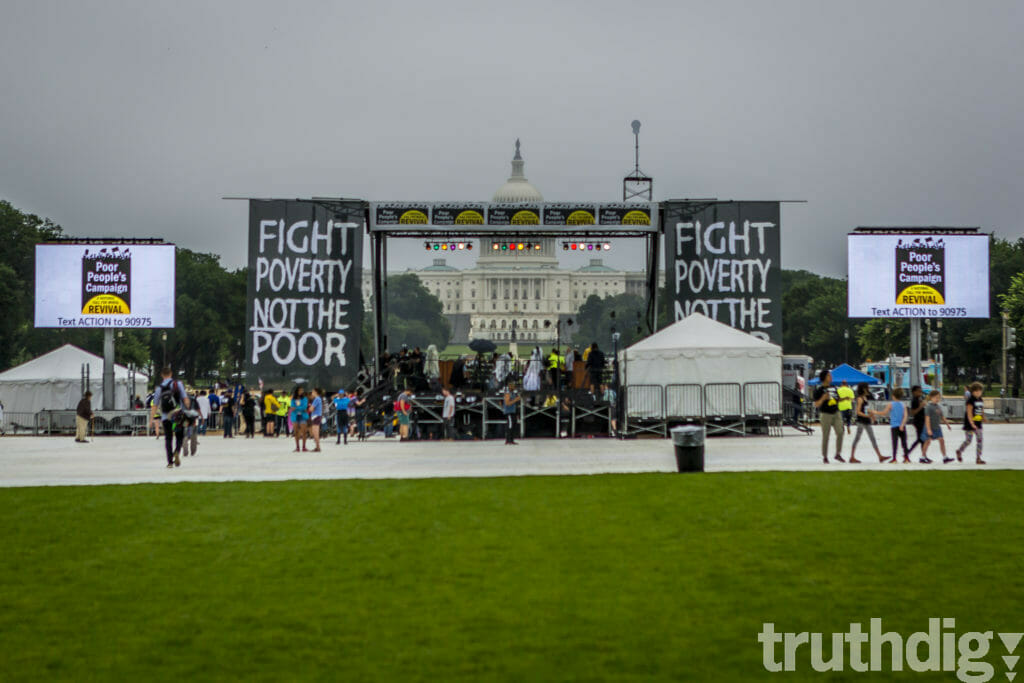
The early morning scene on the Mall in Washington, D.C.; buses from 40 states began arriving days before the rally and march. (Michael Nigro / Truthdig)
-
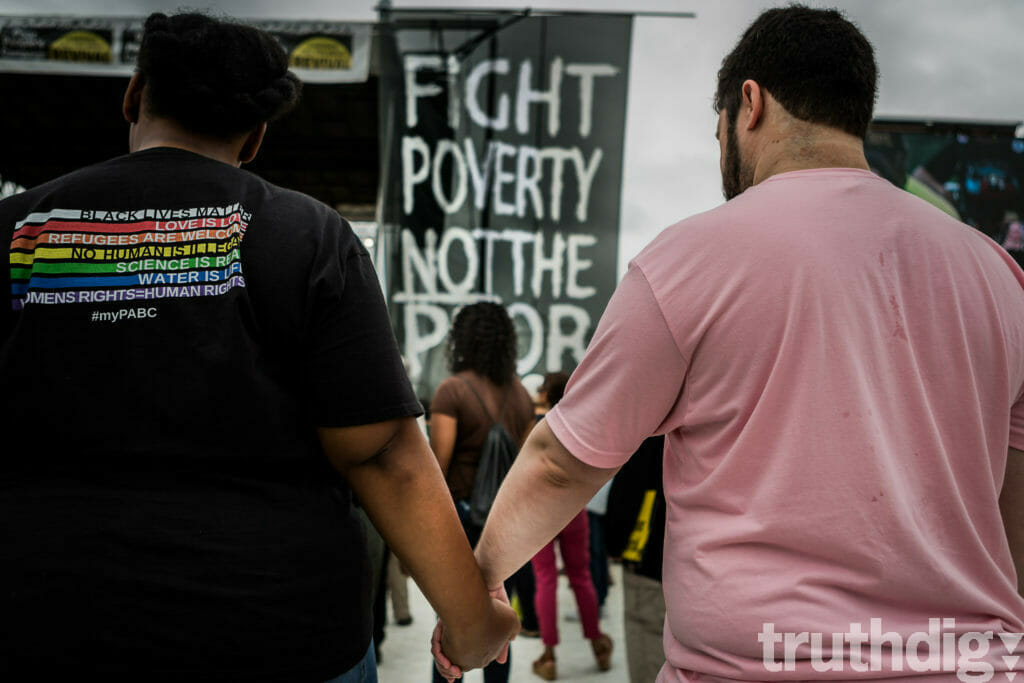
Saturday’s call to action marked the culmination of a historic, six-week season of nonviolent direct engagement by the Poor People’s Campaign aimed at challenging policy violence directed at the poor by the Trump administration and Congress. (Michael Nigro / Truthdig)
-
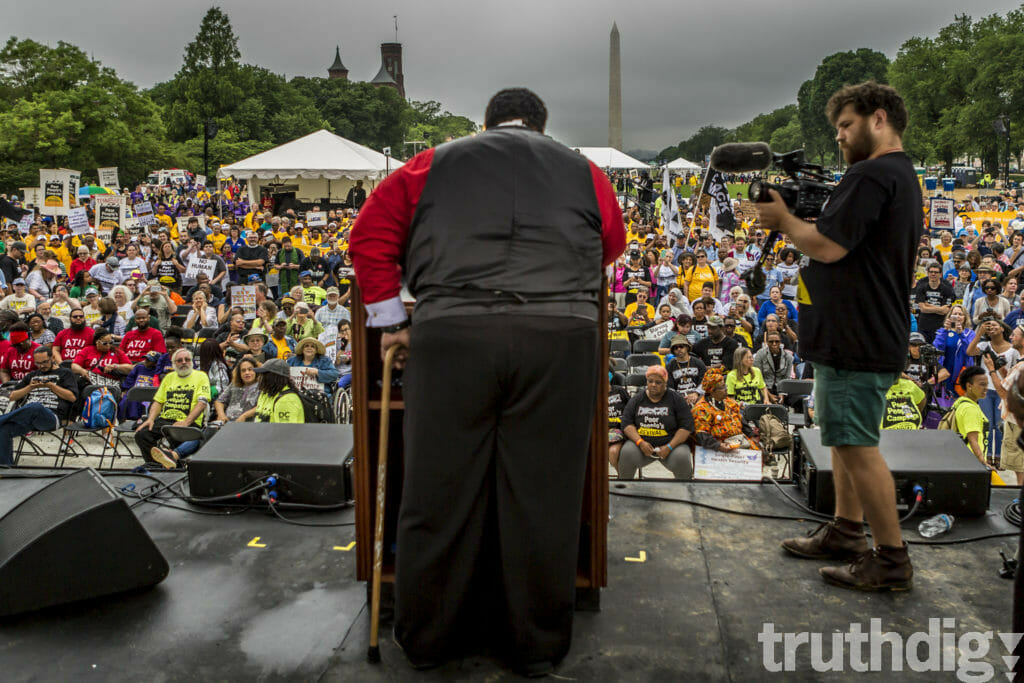
The Rev. William Barber addresses the thousands in the crowd who plan to return home and help lead the next phase in the campaign, aimed at transforming the nation’s political, economic and moral structures. (Michael Nigro / Truthdig)
-
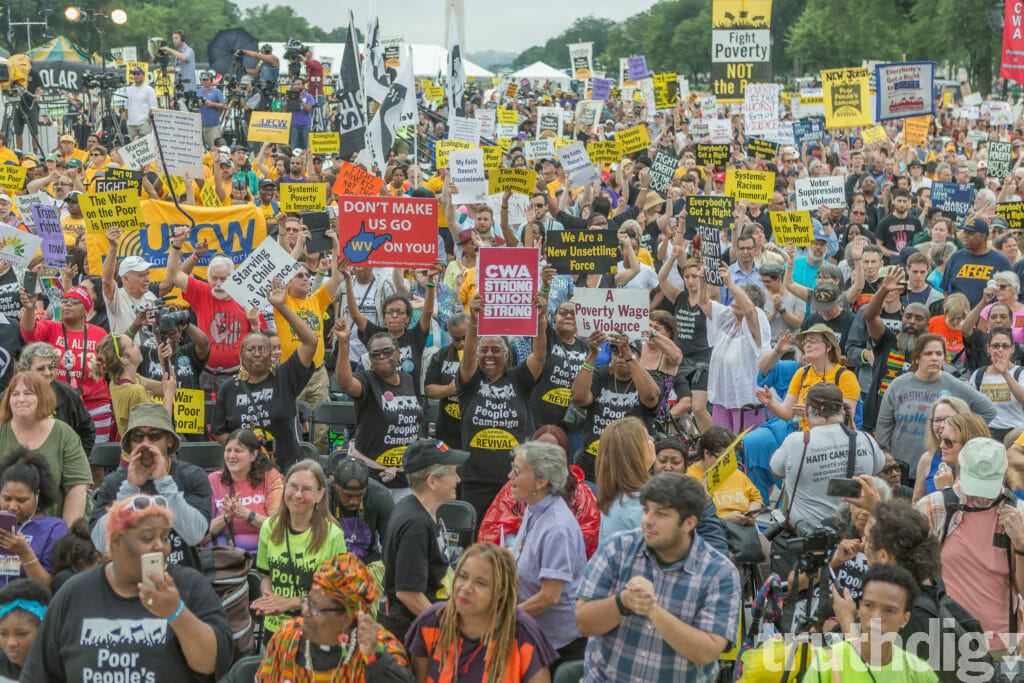
Various unions and hundreds of grass-roots groups organizing with the Poor People’s Campaign take part in the event, showcasing the movement’s slogan, “We are a new and unsettling force.” (Michael Nigro / Truthdig)
-
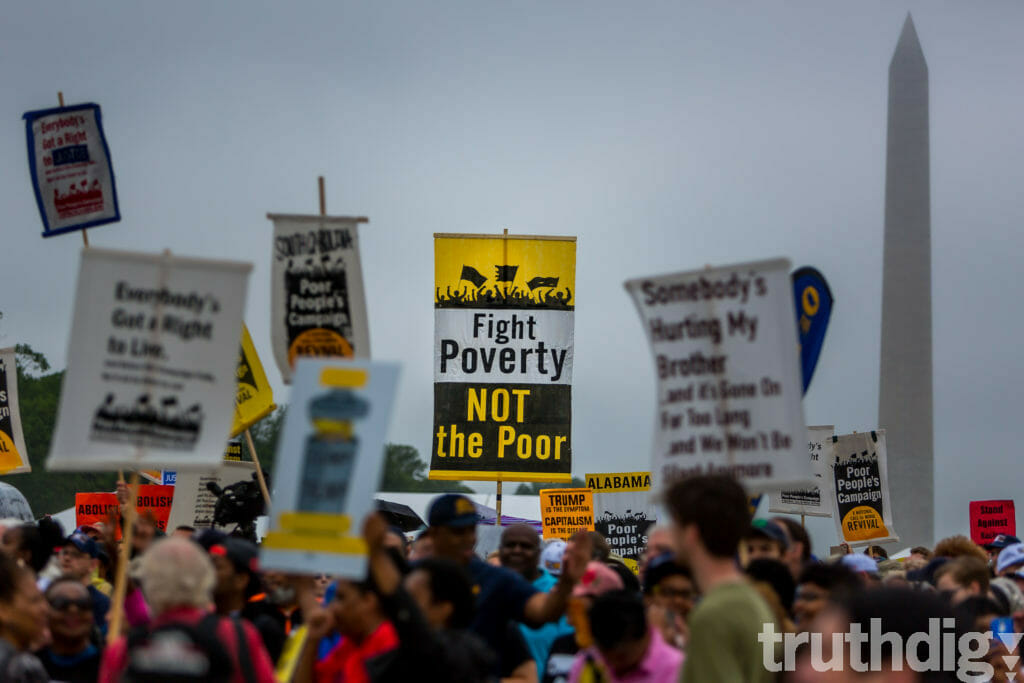
The protest comes nearly 50 years to the day after tens of thousands of participants in the original Poor People’s Campaign held a Solidarity Day Rally for Jobs, Peace and Freedom in Washington. (Michael Nigro / Truthdig)
-
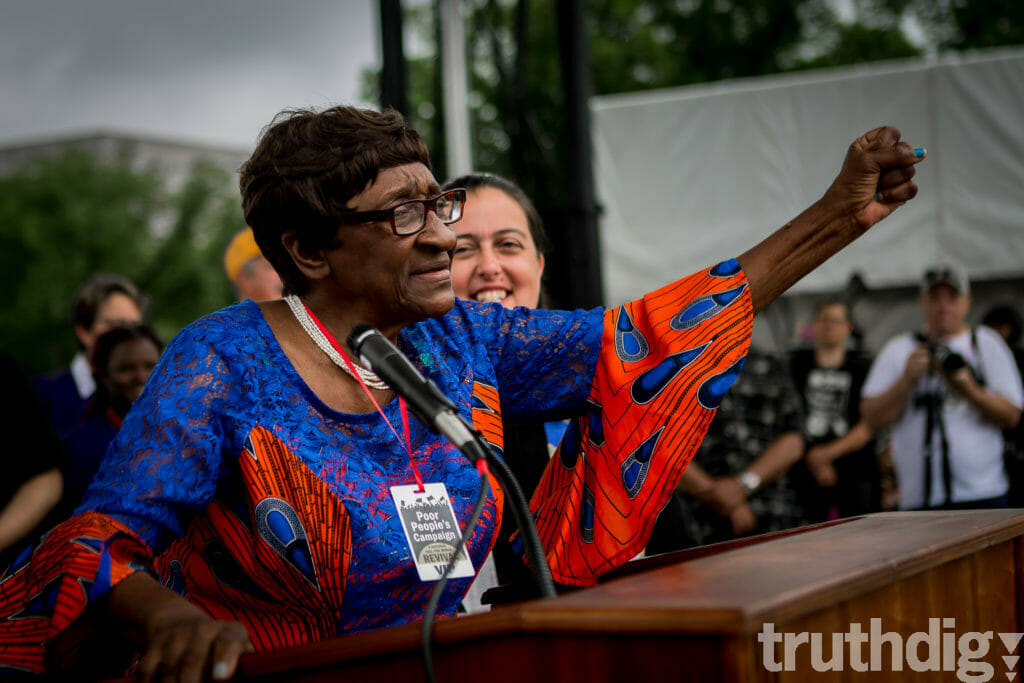
“I went to jail in 1969 and I went to jail in June 2018,” Louise Brown, an 83-year-old member of the South Carolina Poor People’s Campaign who participated in the historic Charleston hospital workers strike nearly 50 years ago, told the crowd. “And I didn’t mind going to jail because the purpose was for the poor. Teachers can teach but they can’t get a raise. Food workers can serve you but they can’t serve their families. How can you survive when you’re paid $7.25 an hour and your rent is $1,200?” (Michael Nigro / Truthdig)
-
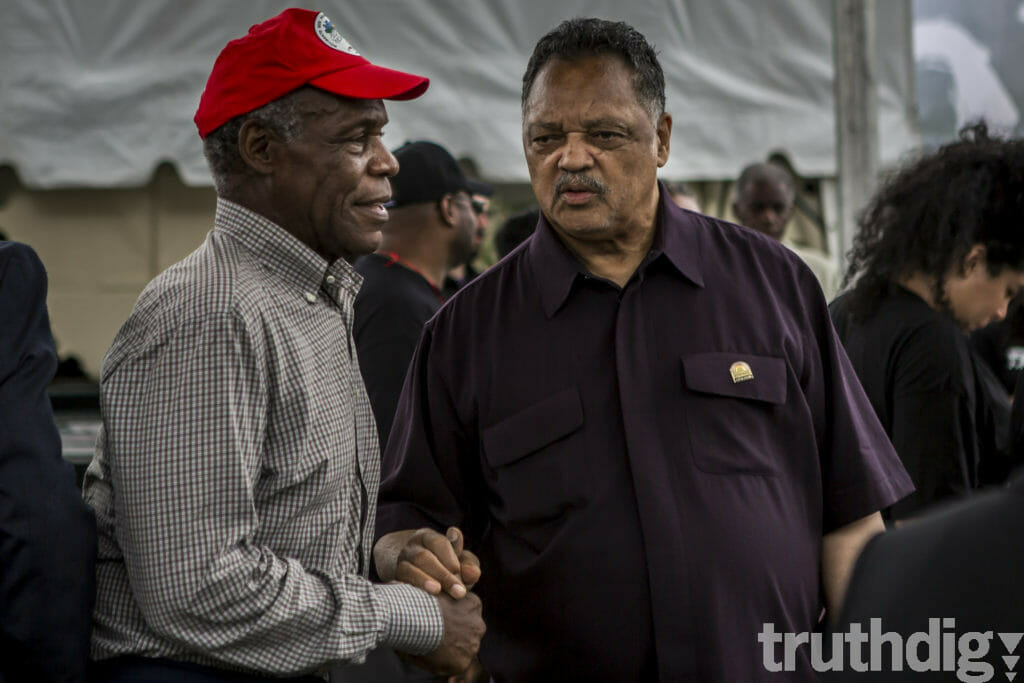
The Rev. Jesse Jackson, right, who helped lead the 1968 Poor People’s Campaign, and actor Danny Glover were among those who participated in the rally. (Michael Nigro / Truthdig)
-
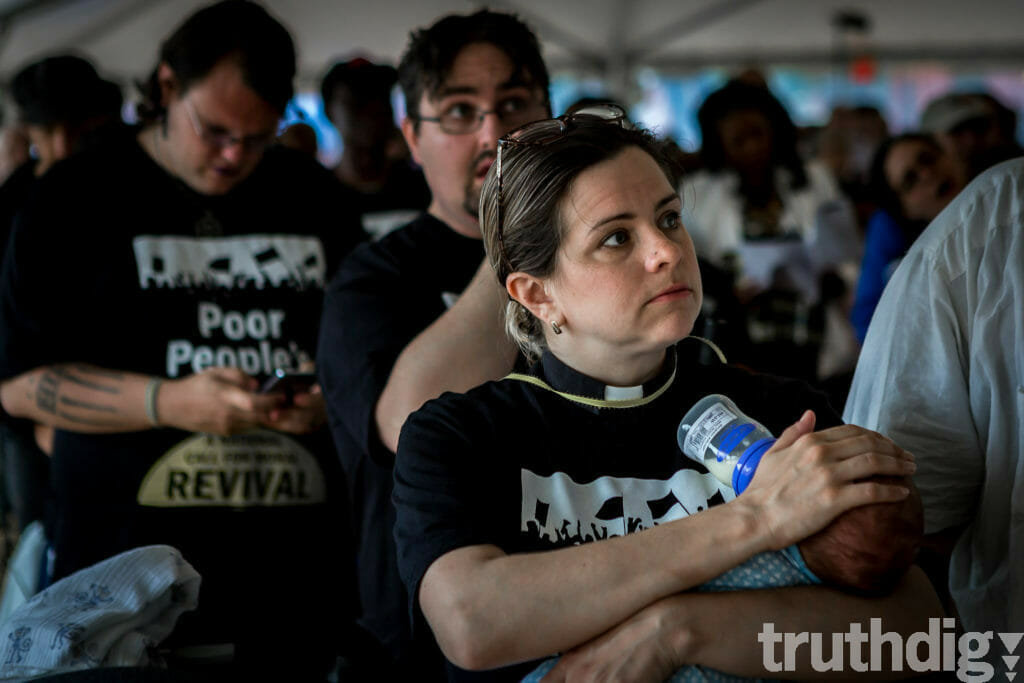
“Someone’s hurting our children and it’s gone on far too long”—lyric from rallying song. An estimated 15 million children in the United States—21 percent of all children—live in families with incomes below the federal poverty threshold. (Michael Nigro / Truthdig)
-
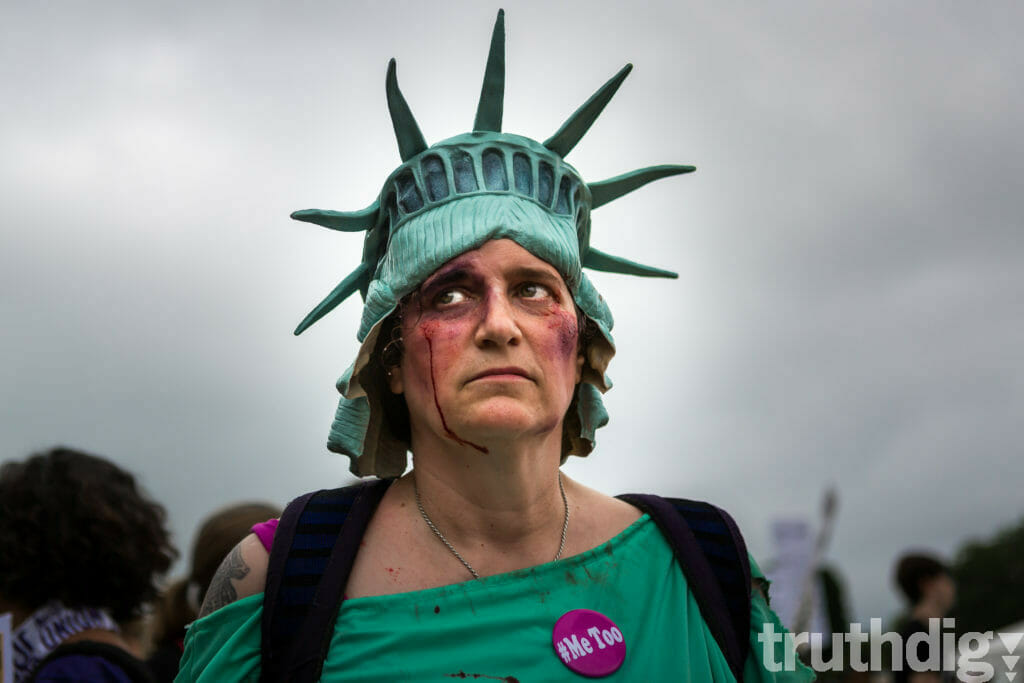
Tired. Poor. America has huddled masses. (Michael Nigro / Truthdig)
-
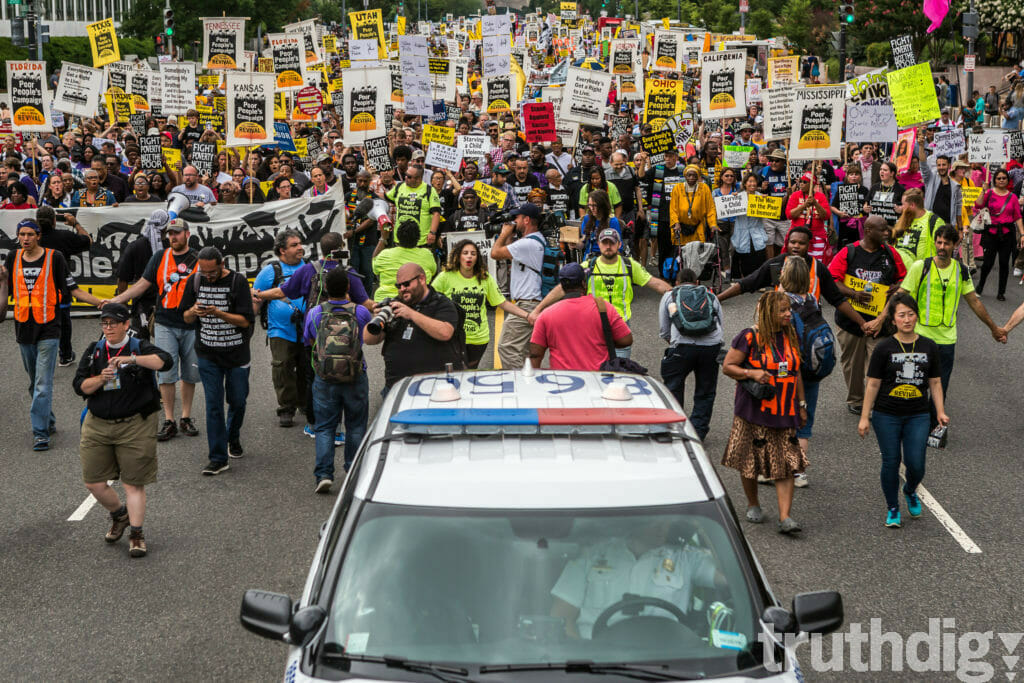
After the rally, the march made its way down Independence Avenue toward the U.S. Capitol. The organizers planned to hand-delivered a list of demands addressed to each federal lawmaker calling for an immediate halt to the “ongoing policy violence against children and families being promulgated by Congress and the Trump administration.” (Michael Nigro / Truthdig)
-
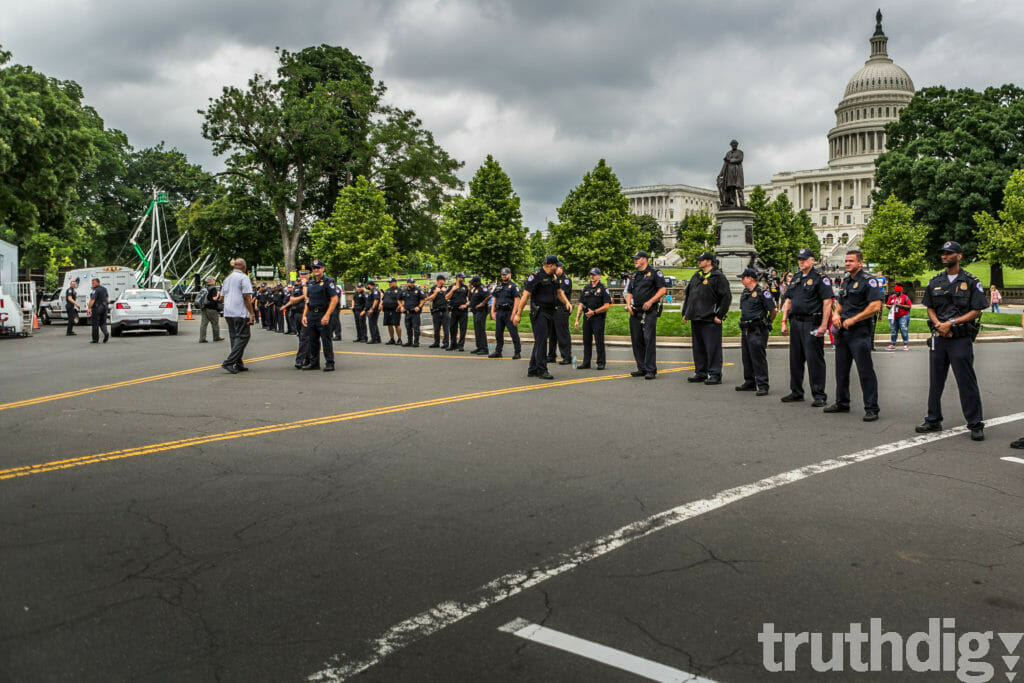
More than 100 Capitol Police officers were on hand to prevent marchers from going onto the Capitol’s grounds. (Michael Nigro / Truthdig)
-
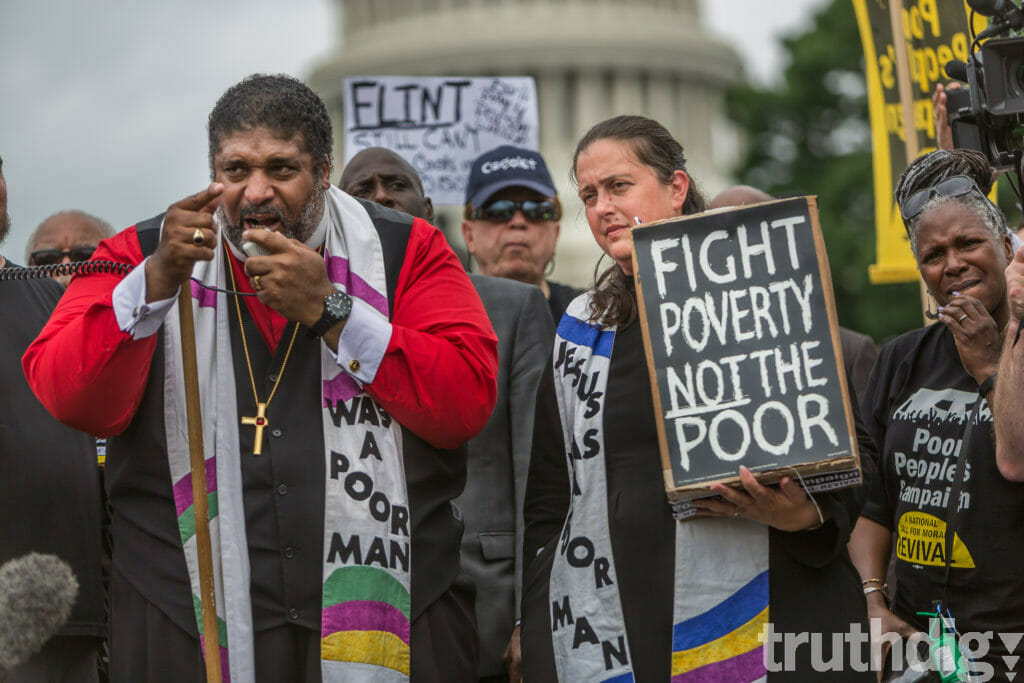
The Rev. William Barber addresses the march as the Rev. Liz Theoharis holds letters to the lawmakers. (Michael Nigro / Truthdig)
-
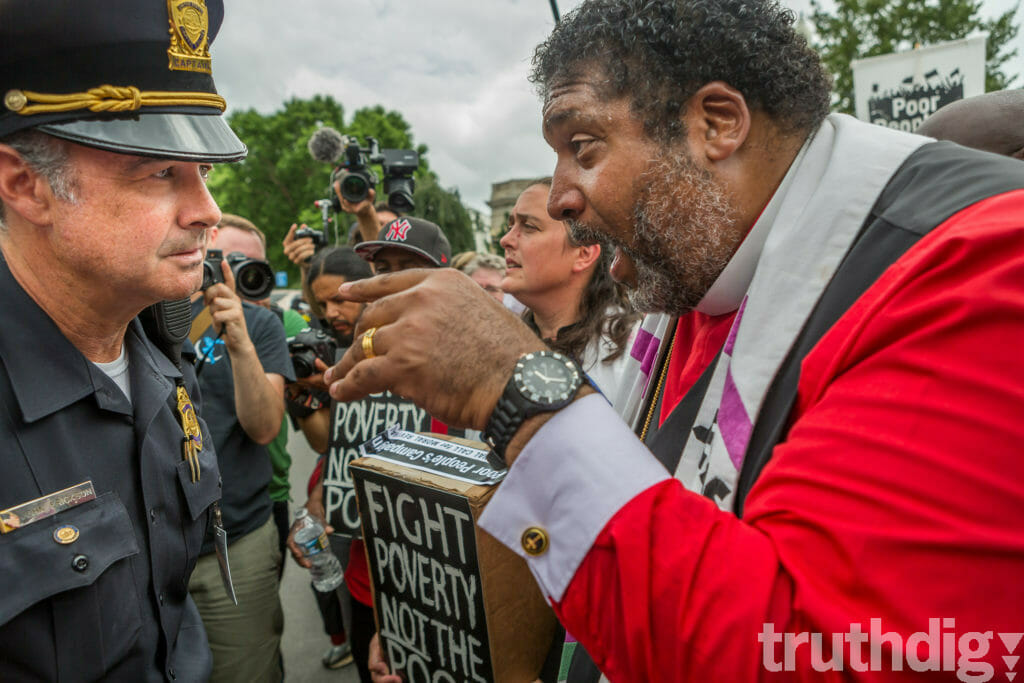
The Rev. William Barber negotiates with a Capitol Police captain to go beyond the police line, set up to block more than 10,000 marchers seeking to deliver the Poor People’s demands written to every member of Congress. (Michael Nigro / Truthdig)
-
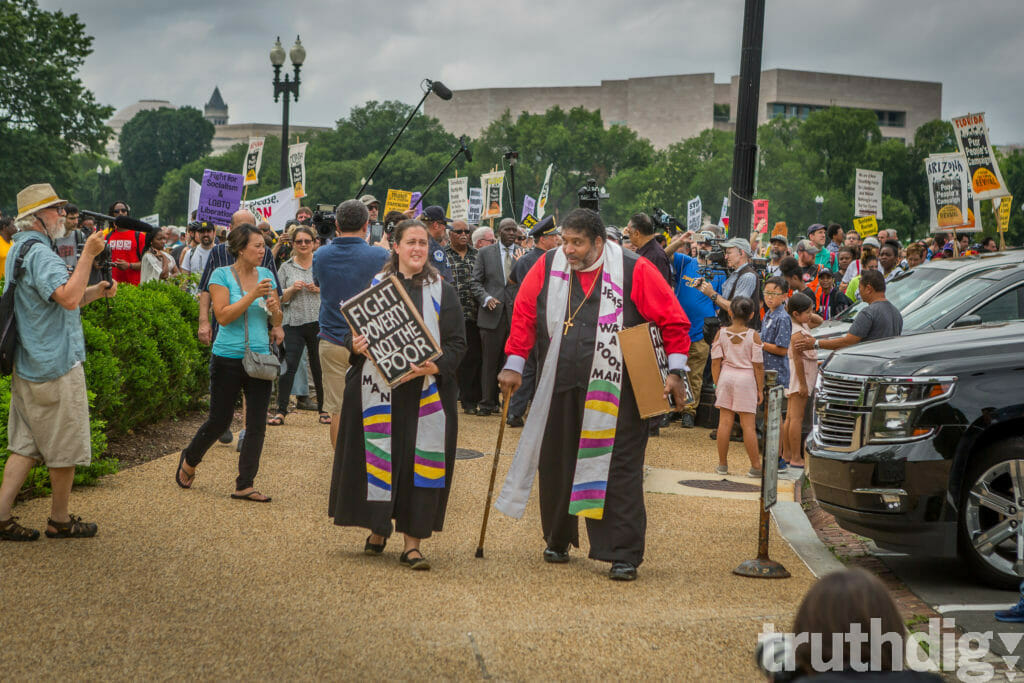
Capitol Police agreed to let the two co-chairs through. Marchers had to wend their way back to the Mall and were not permitted to go to the Capitol as a group. (Michael Nigro / Truthdig)
-
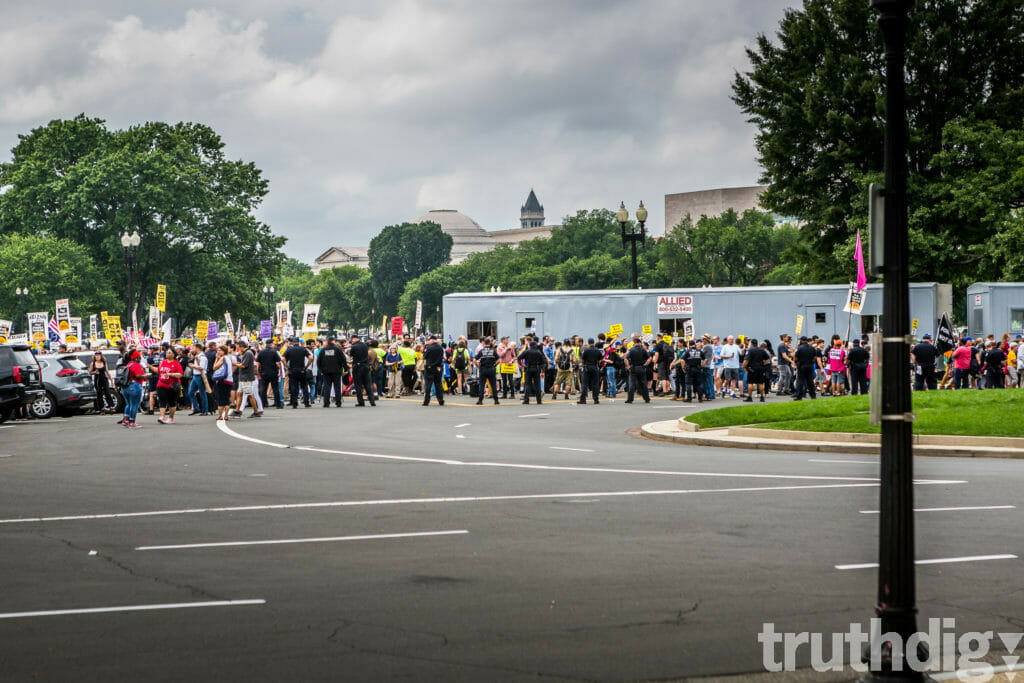
A view back to the march. (Michael Nigro / Truthdig)
-
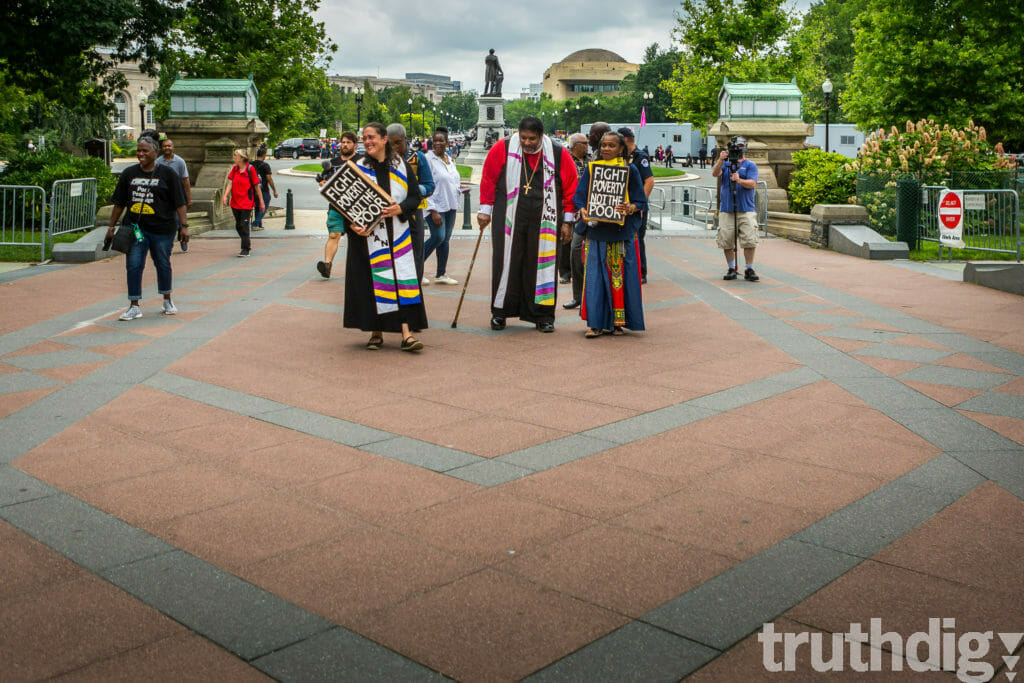
Because of the heat and steep climb up to the Capitol, the Rev. William Barber passed the letters off to other Poor People’s Campaign march participants to attempt to leave the letters at the door of the Capitol. (Michael Nigro / Truthdig)
-
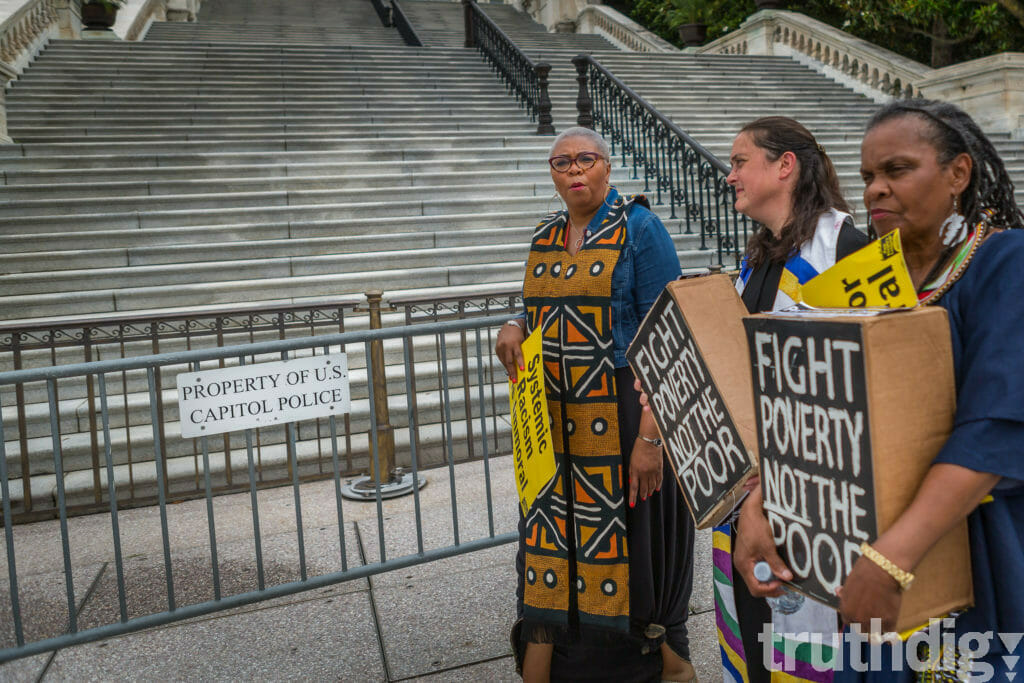
“The People’s House” is not open to the public. (Michael Nigro / Truthdig)
-
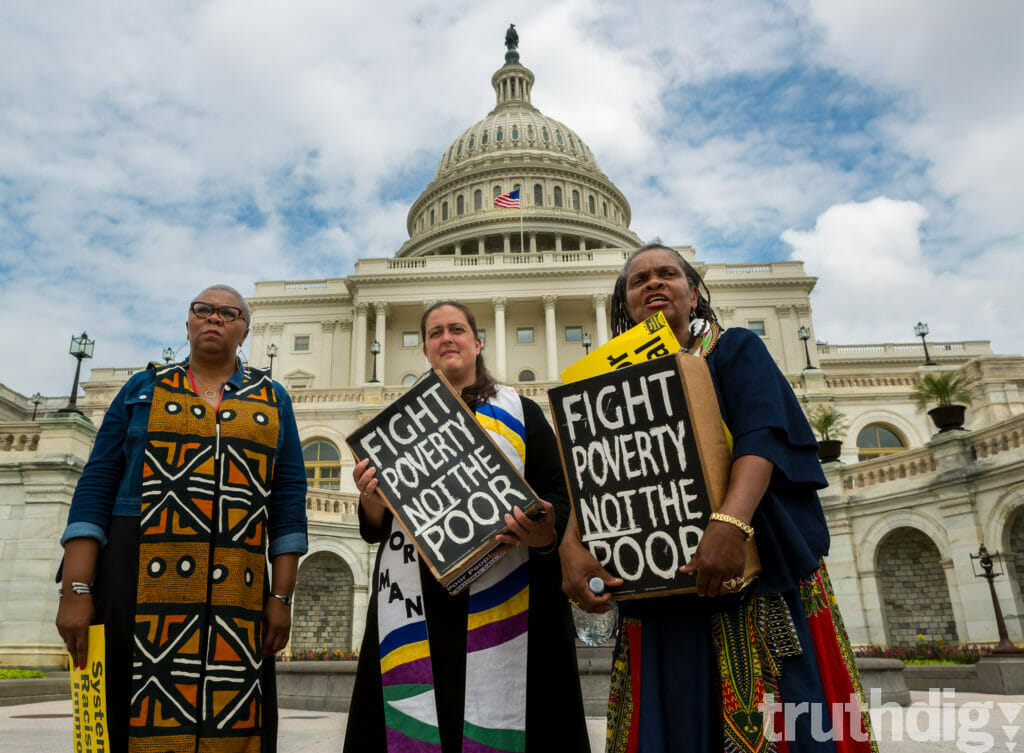
From left, the Rev. Traci Blackmon, justice and minister of the United Church of Christ, the Rev. Liz Theoharis, co-chair of the Poor People’s Campaign, and Faya Rose Toure, civil rights lawyer and coordinator of the Selma Jubilee. (Michael Nigro / Truthdig)
-
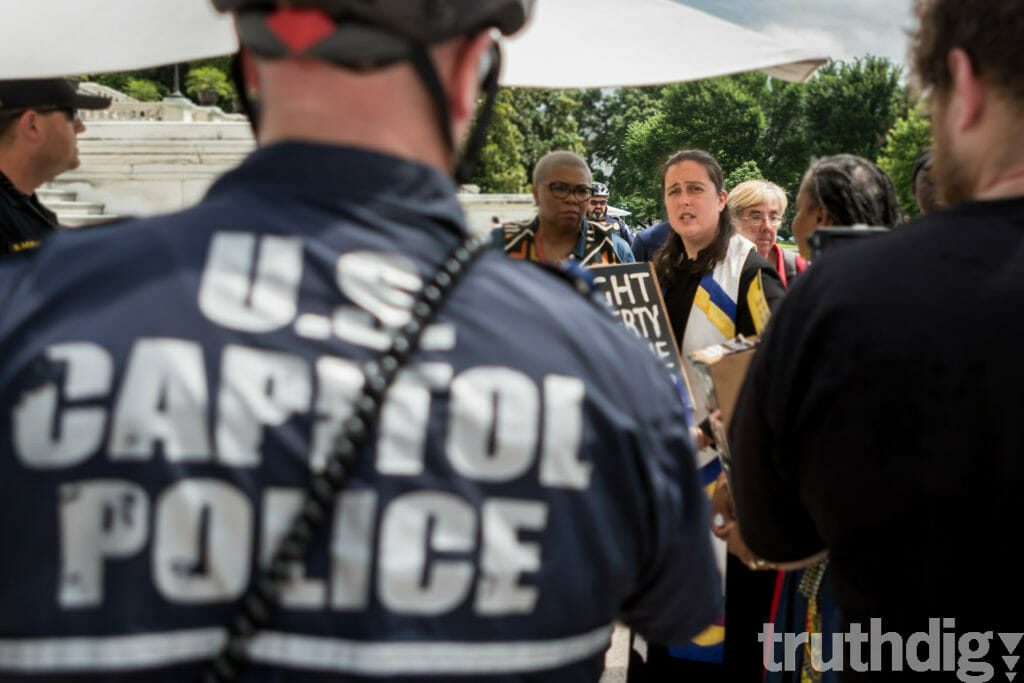
“We’ll be coming back,” the Rev. Liz Theoharis said after being denied entry to the U.S. Capitol. The police offer an alternative to delivering the demands via the visitors’ entrance and going through security protocol. (Michael Nigro / Truthdig)
-
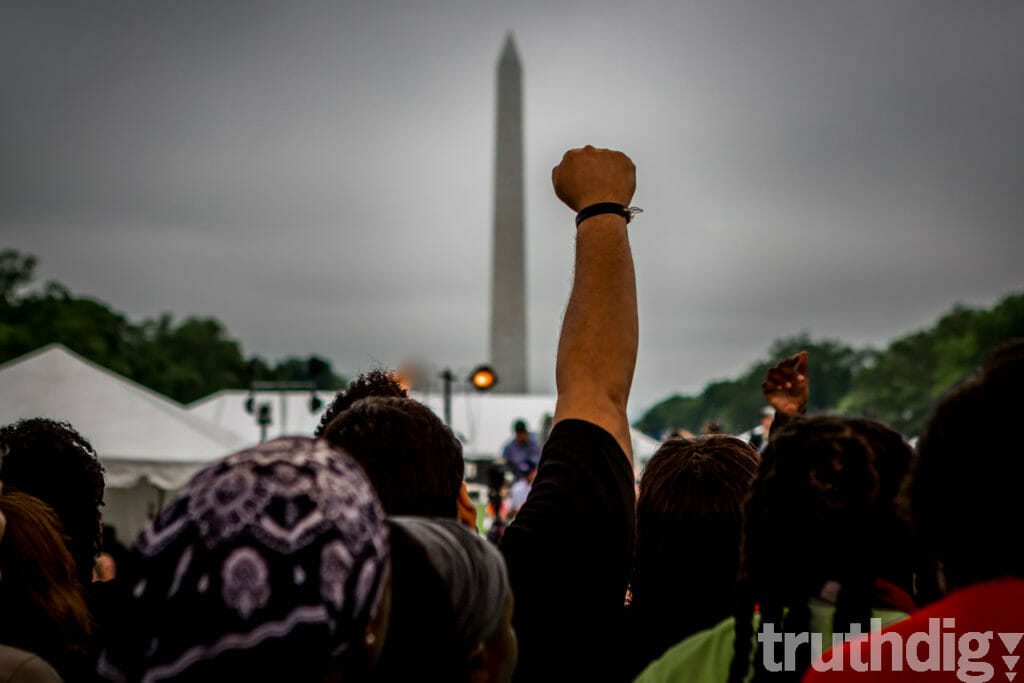
“Our work has just begun,” the Rev. Liz Theoharis says. (Michael Nigro / Truthdig)